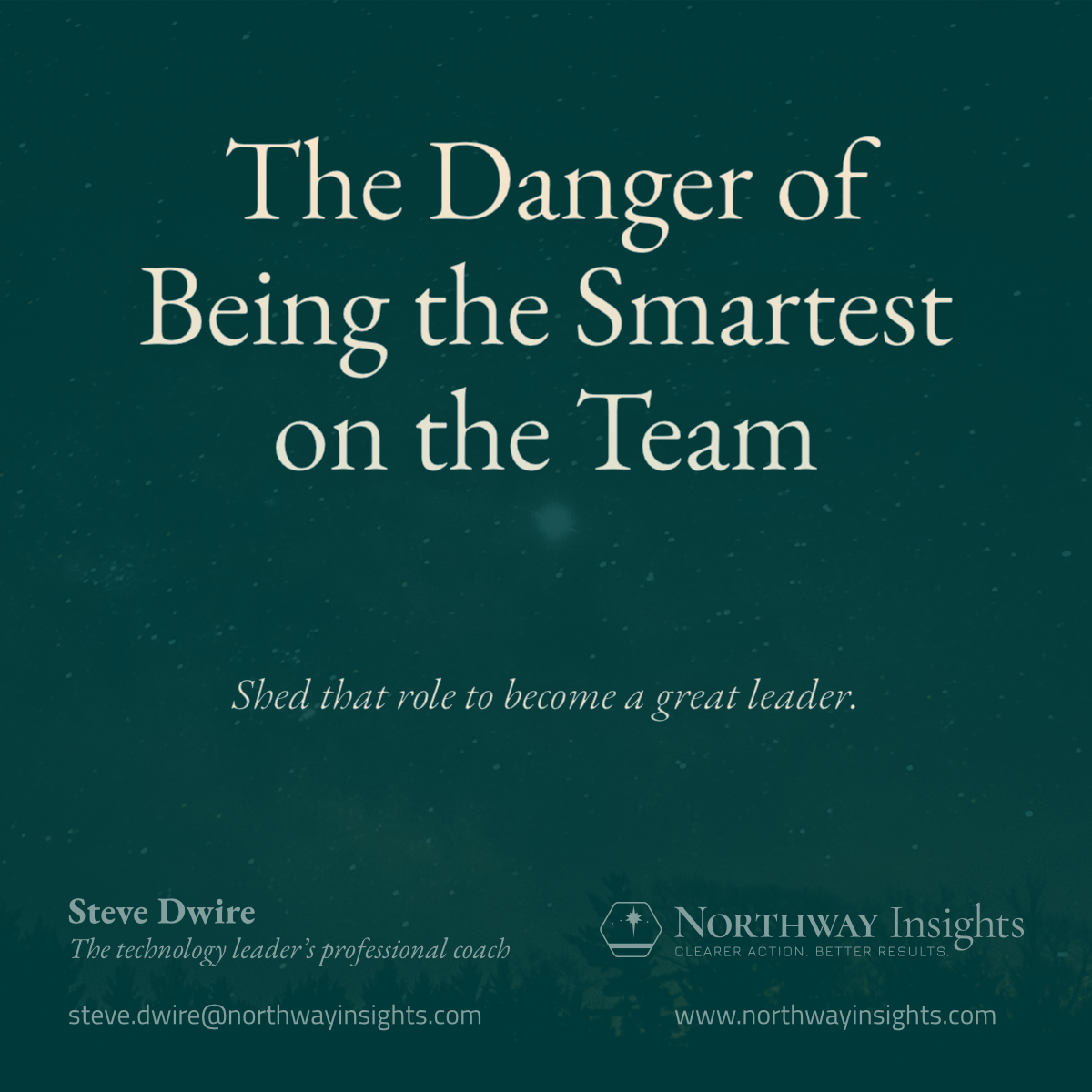There are at least two major reasons that promoting the best engineer to manager may not be the best approach. One is fairly well known; one is not as obvious.
If you are one of those leaders who earned a management role because of your superior technical skill, you’ll have a couple of hurdles to overcome. One of the most talked-about hurdles that trainers and leadership coaches cover frequently is the importance of emotional intelligence, or EQ. Generally speaking, those who excel in technical skills are less likely to excel in social skills. But that’s a broad generalization, and it’s one with a lot of available material.
Today, I want to talk about a different challenge you may be facing as you move up in leadership after excelling in a technical role.
You may have become accustomed to truly and honestly being the smartest person in the room when it came to your technology. It’s not just hubris or arrogance. Perhaps you were objectively and measurably the best. Maybe that’s why you were selected as the leader.
Here’s why that fact alone can get in your way, and what you can do about it.
1️⃣ Your expertise might create an attachment to the technology you understand. With your leadership responsibilities, you don’t have as much time to learn new technical skills, so it’s tempting to resist adopting new innovations that will help your team and your organization improve.
2️⃣ The feeling of significance that comes from being the smartest in the room is often hard for some leaders to give up. A temptation can be to dismiss ideas that come from others, or to acknowledge them only as agreeing with what you already thought. Another temptation comes when hiring. You may silently feel hesitant to hire people who you may perceive as more knowledgeable or who may challenge your thinking.
For either of those challenges, let me encourage you to remember that as a leader, your significance comes not only from the results your team produces, but also in the growth of your individual team members and the results that they will be able to deliver even after they’re no longer reporting to you.
3️⃣ Your team may defer to your judgment, suppressing their own best or most creative thinking. If you became a manager after having already commanded the technical respect of your team, you’ll face an especially difficult hurdle of encouraging the team to solve their own problems. The longer they rely on your brilliance, the longer their growth – and yours – will be held back. Even when you think you know the answer, reject the urge to offer solutions until your team members have offered several of their own. Then, strongly consider adopting one of their ideas.
There’s a lot more I could say about dealing with specific challenges that come after being seen as the smartest technical expert on a team. If you’d like to explore your situation further, let’s talk.
Visit https://stevedwire.com/connect to schedule a complimentary conversation.


Leave a Reply